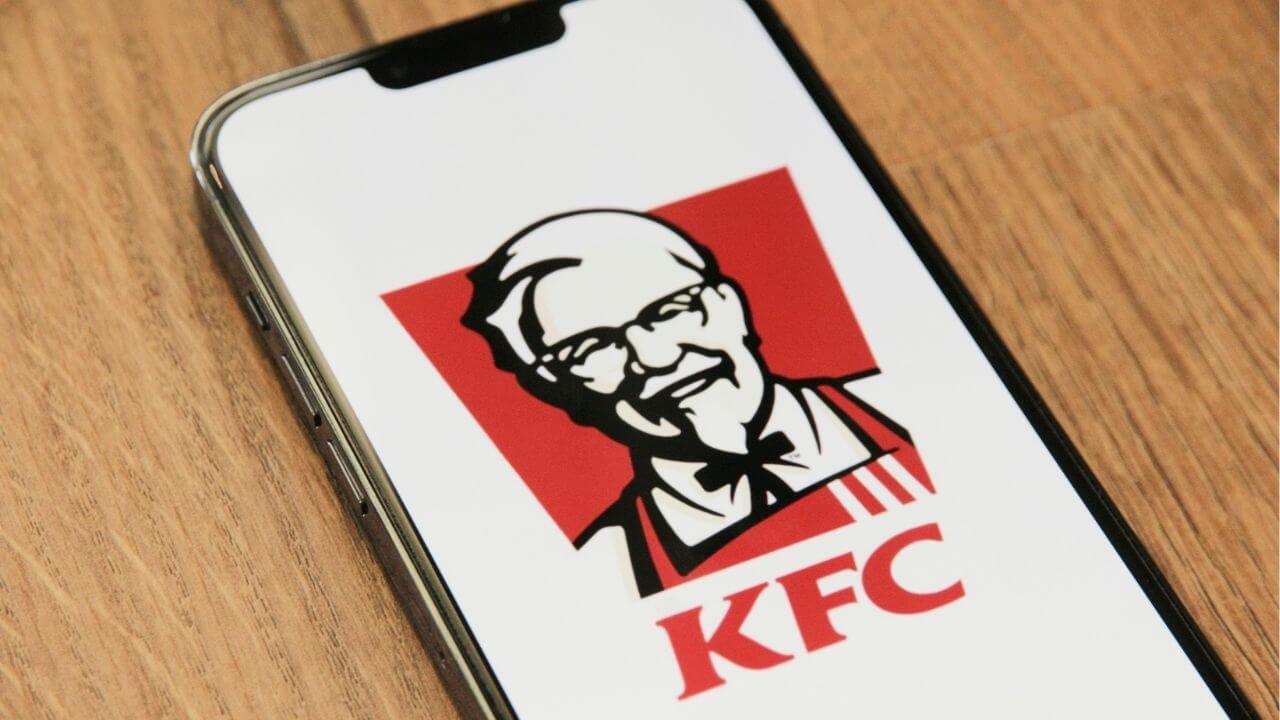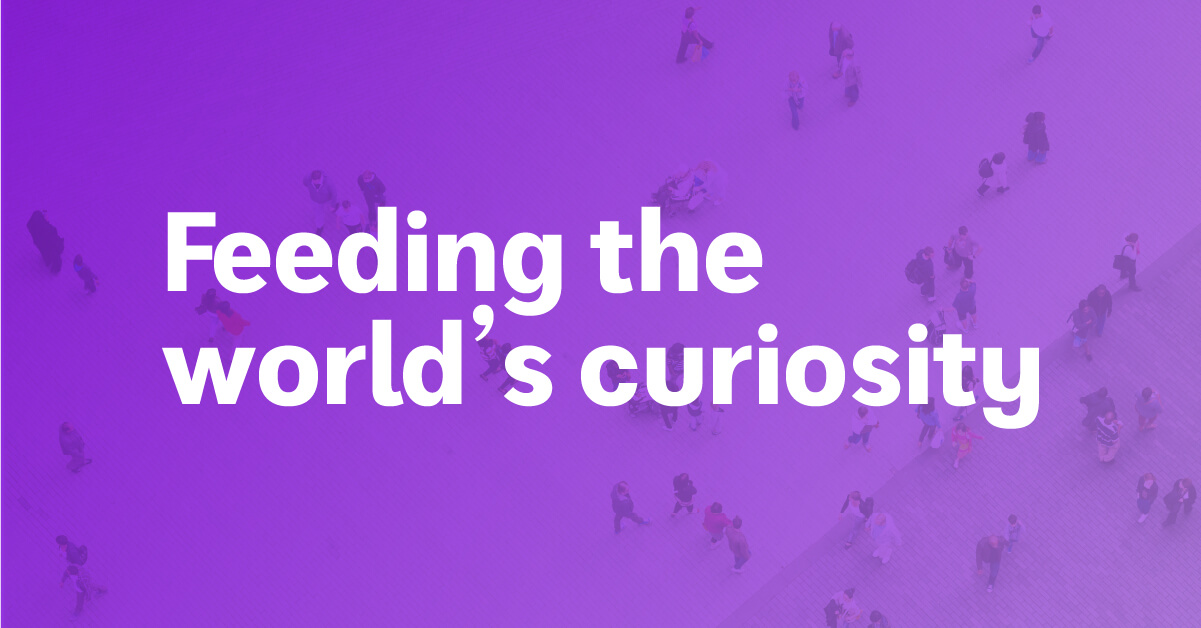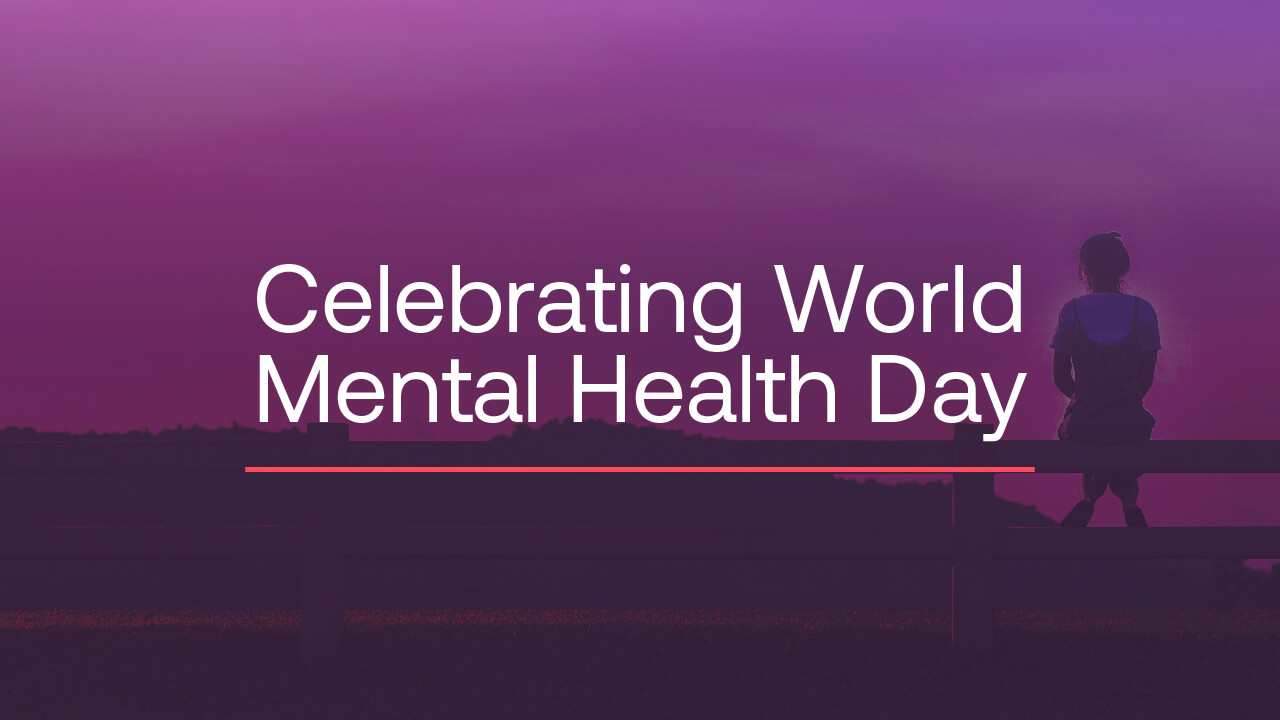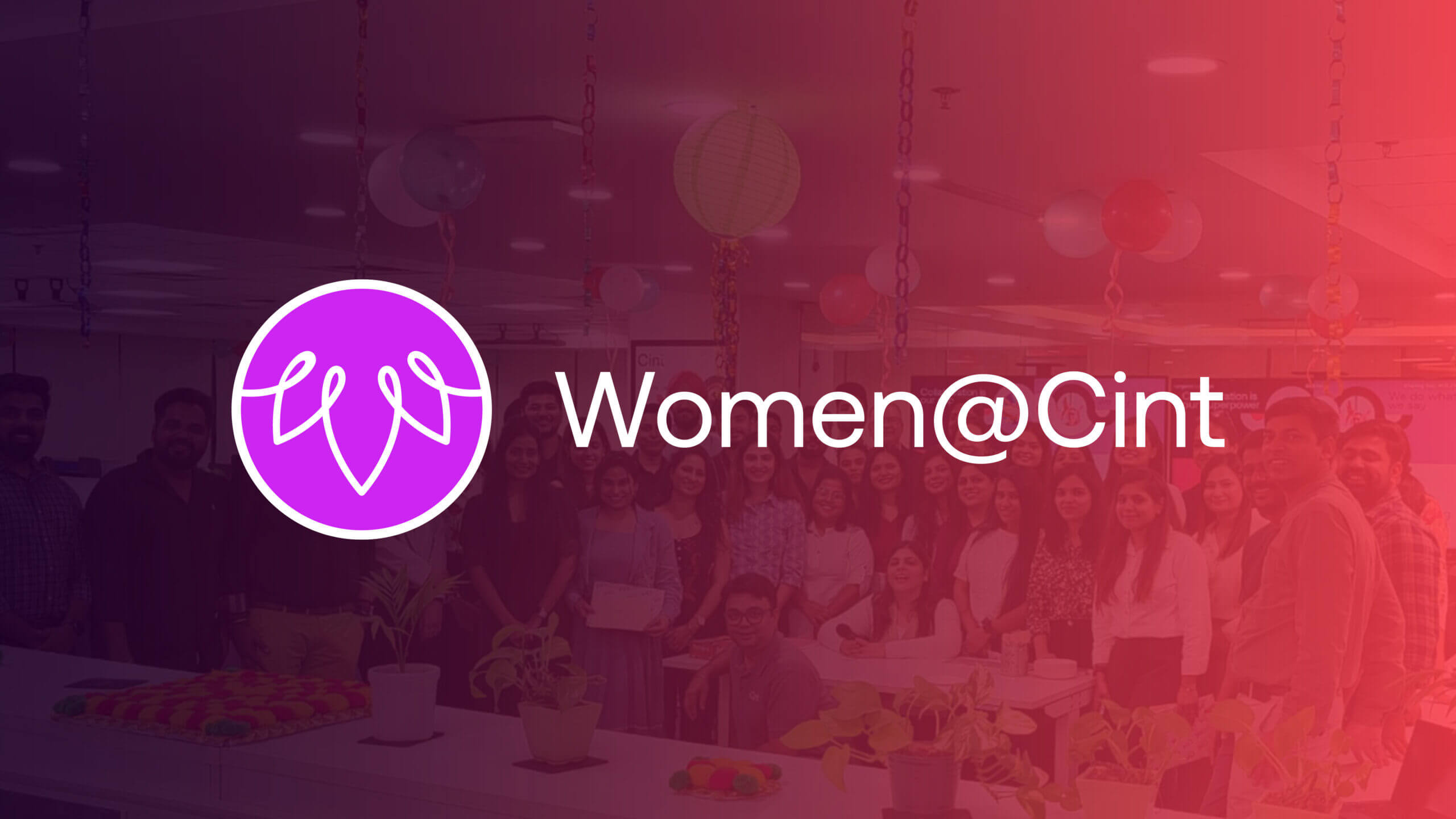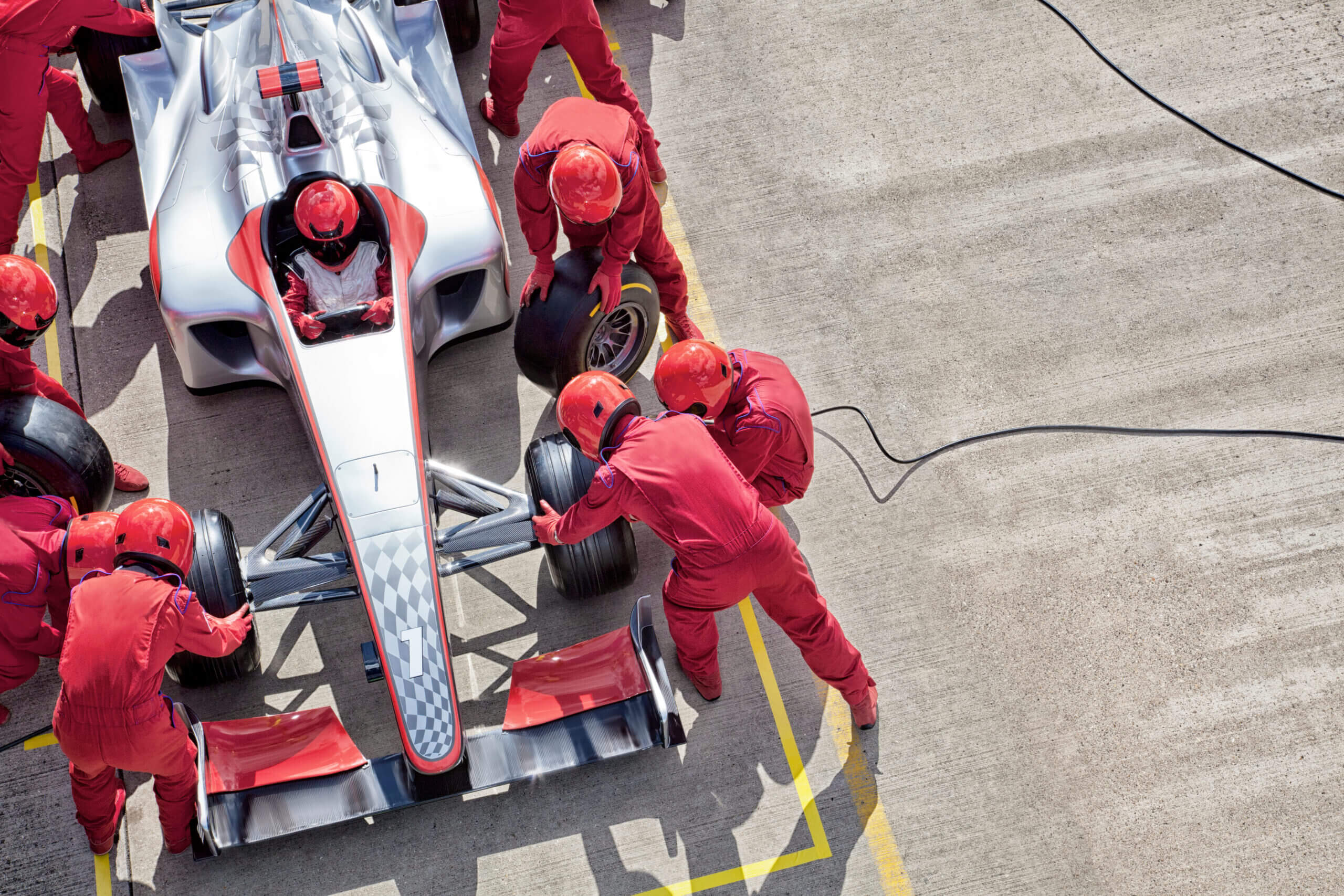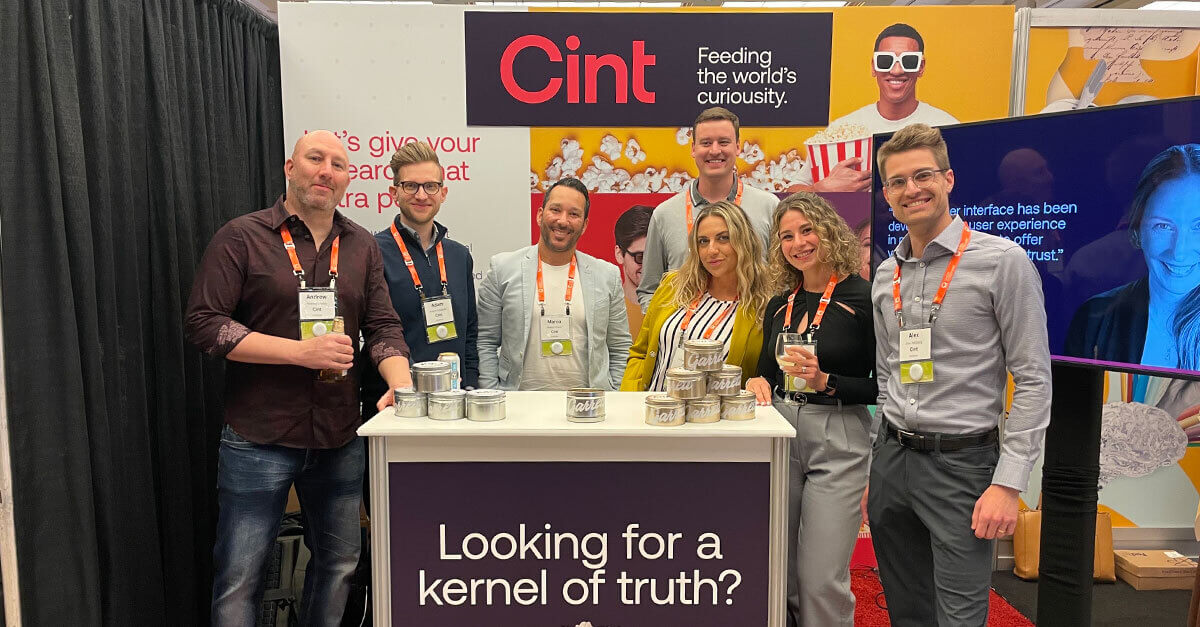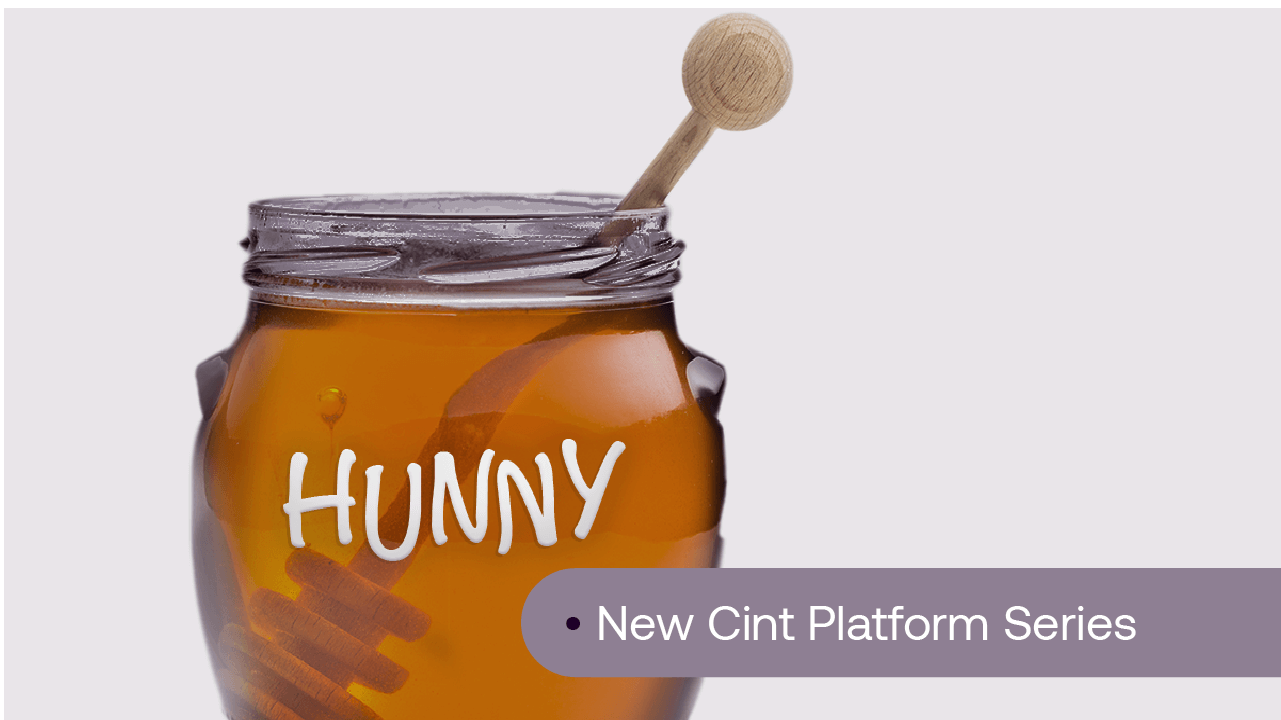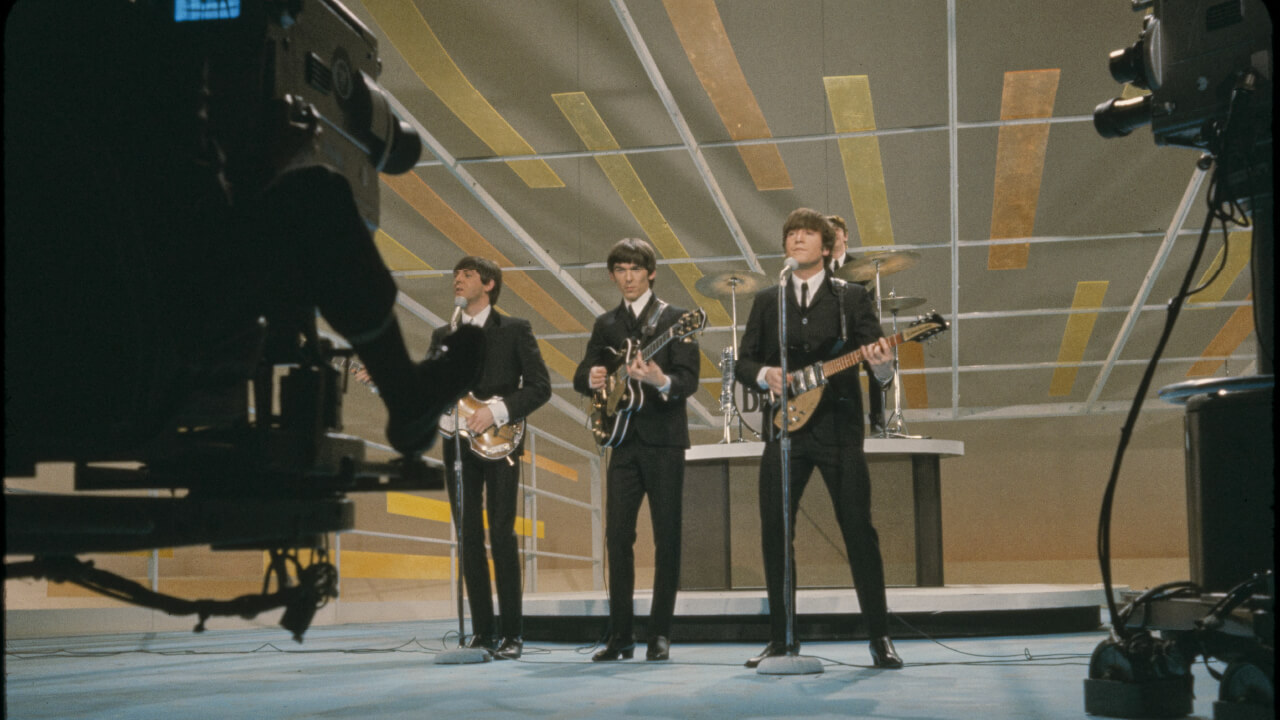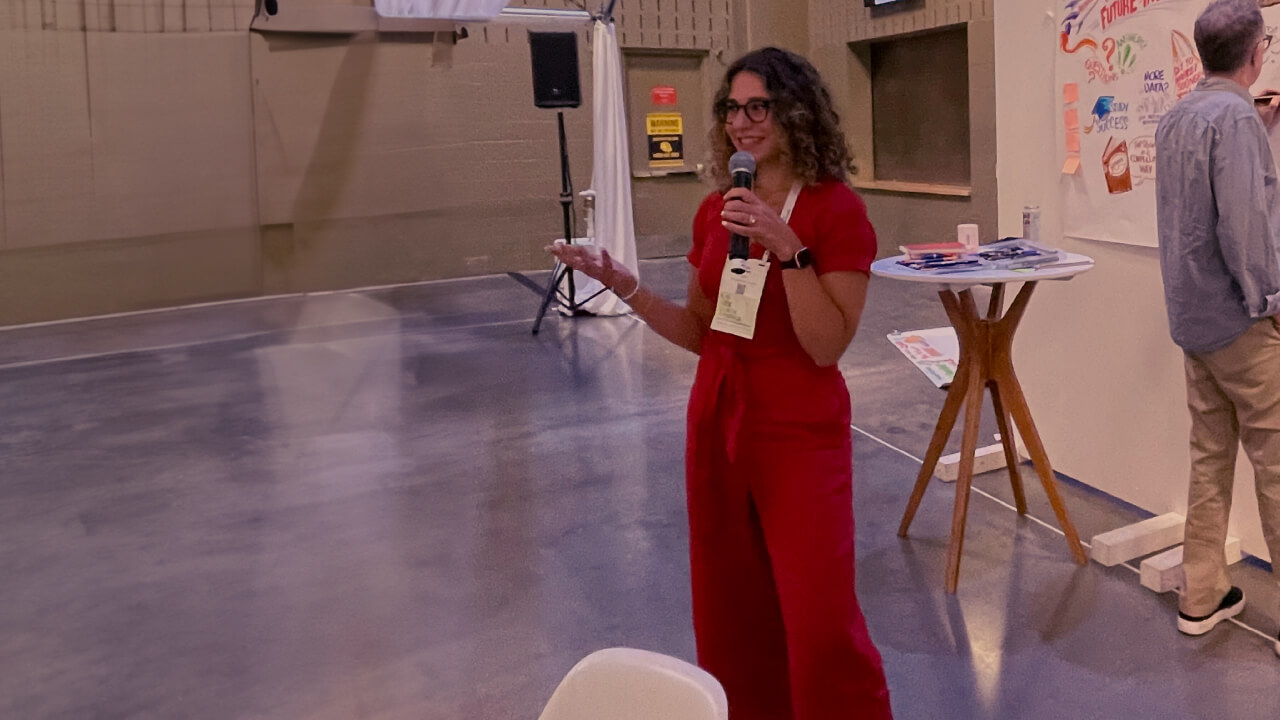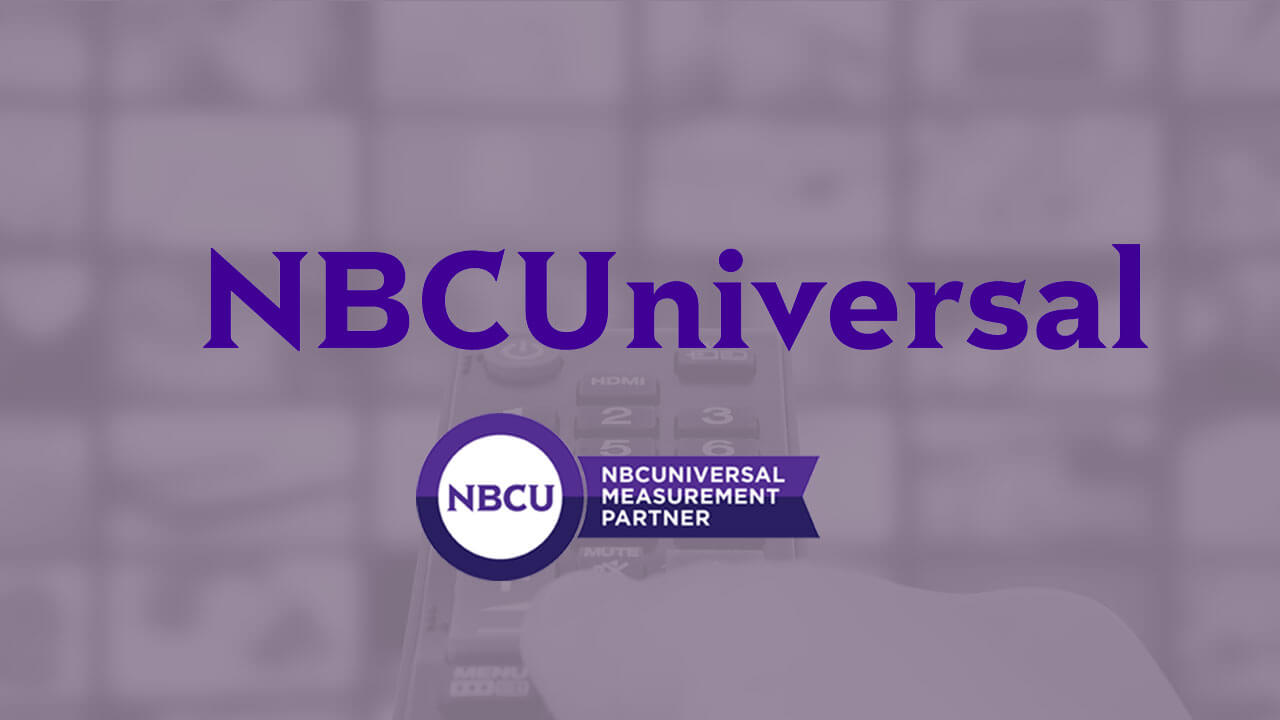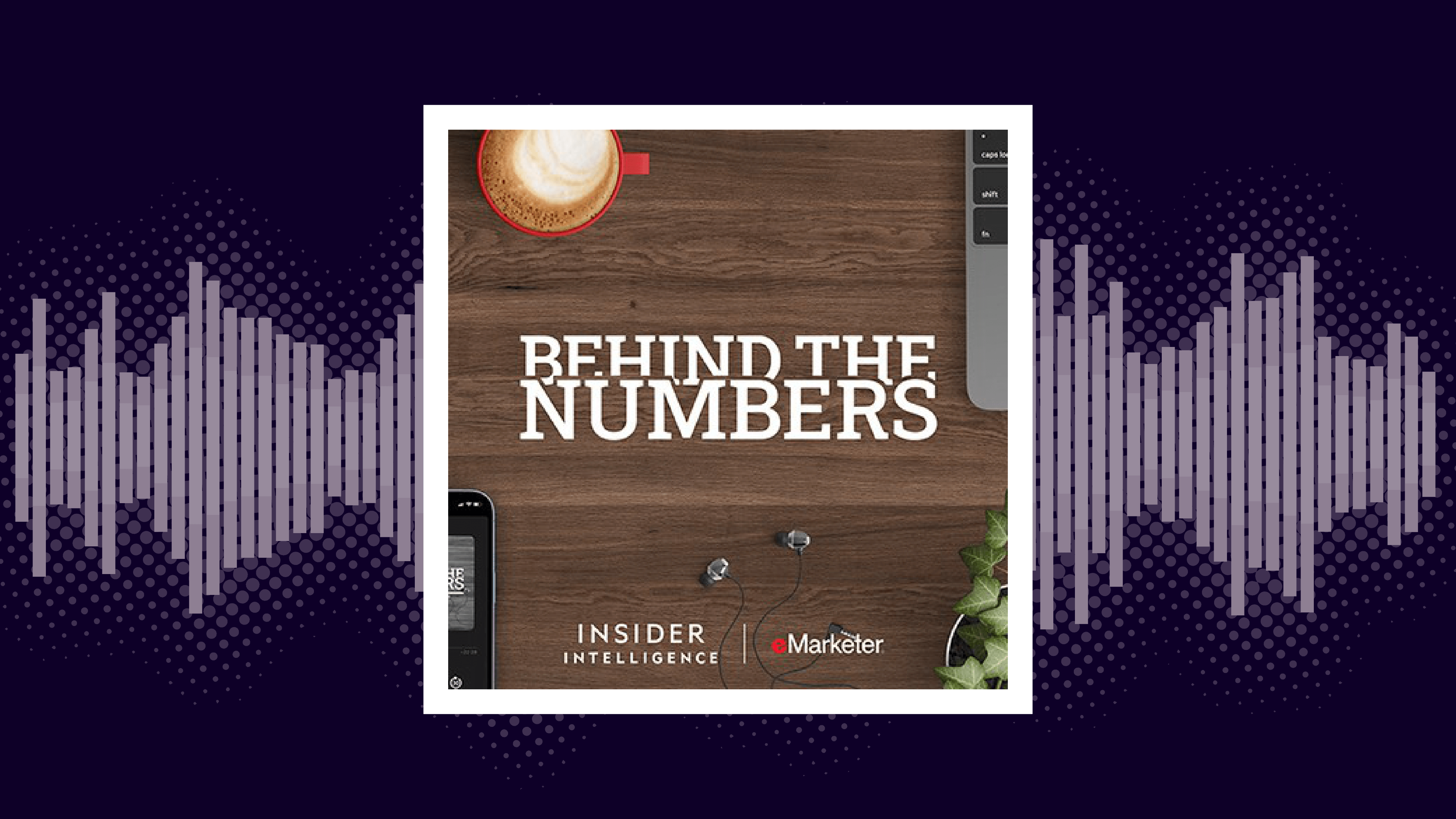Festival season is here! Come rain or shine – and let’s be honest, the former is more likely – millions of Brits will be donning their wellies this summer and heading to a music festival.
From super niche celebrations of obscure scenes to family-friendly events that even the kids can enjoy, there’s something out there for everyone.
Festivals are big business in the UK. In 2022 alone, 6.5 million music lovers attended one, a figure which formed part of the £6.6 billion spent that year on what industry insiders UK Music term ‘music tourism’.
Using CintSnap – a way to survey individuals and understand opinions quickly – we conducted a poll with approximately 300 UK respondents, assessing what makes for an appealing festival experience.
More to it than music?
Given the increasingly diverse festival options available to the public, what are the biggest draws when it comes to splashing out on a ticket?
Unsurprisingly, 65% of respondents selected the quality of music on offer as the most important determining factor when it came to choosing to attend a specific music festival. Nearly as important were the price of entry (62%) and the ease of actually getting to the site (49%).
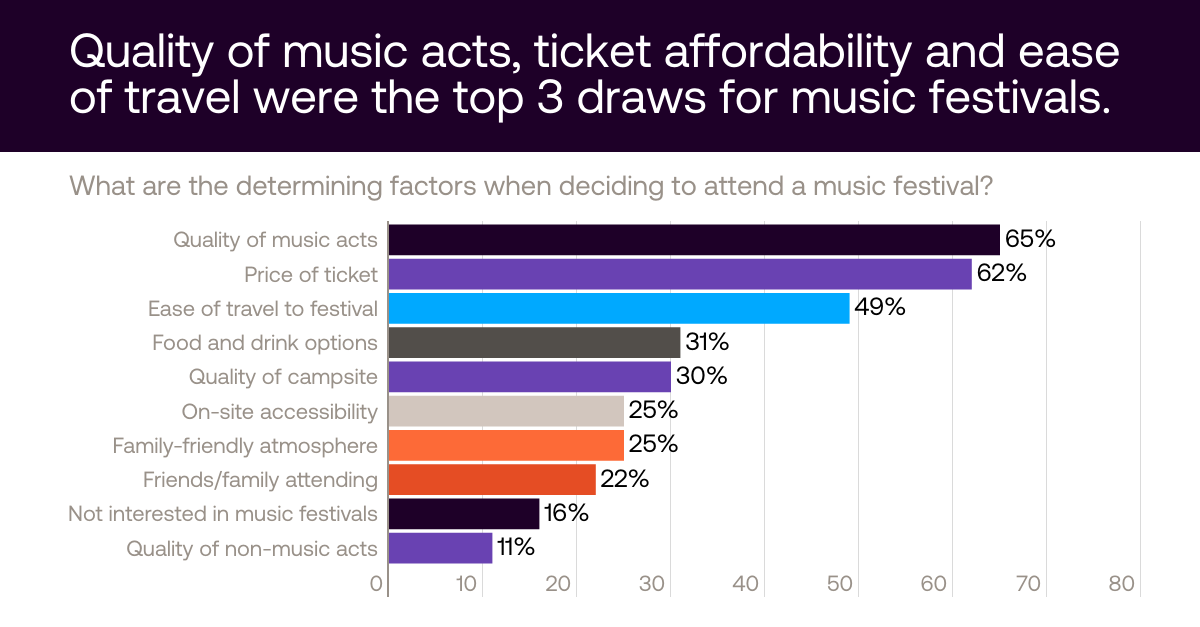
A festival’s food and drink offerings were cited as a crucial factor by 31% of those asked and a decent campsite (or alternative form of on-site accommodation) mattered to nearly a third of respondents.
Despite the fact that you’ll often find a comedy or poetry tent at a modern festival, only 11% of those questioned said that the non-musical acts on offer had any bearing on their attendance.
Auntie Beeb comes to the rescue
Founded by dairy farmer Michael Evis back in 1970, Glastonbury is the biggest British festival of them all. For over half a century now, hundreds of thousands of visitors have made the pilgrimage to Somerset to camp in cramped tents, guzzle cider and gorge themselves on a veritable who’s who of the great and good in music.
Tickets for this year’s Glastonbury, which takes place 26th-30th June, sold out in an hour when they went on release in November 2023. 9% of those polled by Cint will be trekking down to Worthy Farm to attend the festival in person.
For those who missed out on tickets but still fancy catching Idles’ set on Friday night or Shania Twain on Sunday afternoon the BBC is set to come to the rescue – the broadcaster has had television and radio rights to Glastonbury since 1997.
Accordingly, just under half of our respondents will be using BBC platforms to check in on proceedings. 23% will be watching the festival unfold via iPlayer, with 18% indicating that they’re more likely to catch up on highlights through the same service. Radio still plays – an admittedly minor – role, with 6% switching on the wireless to mitigate their FOMO.
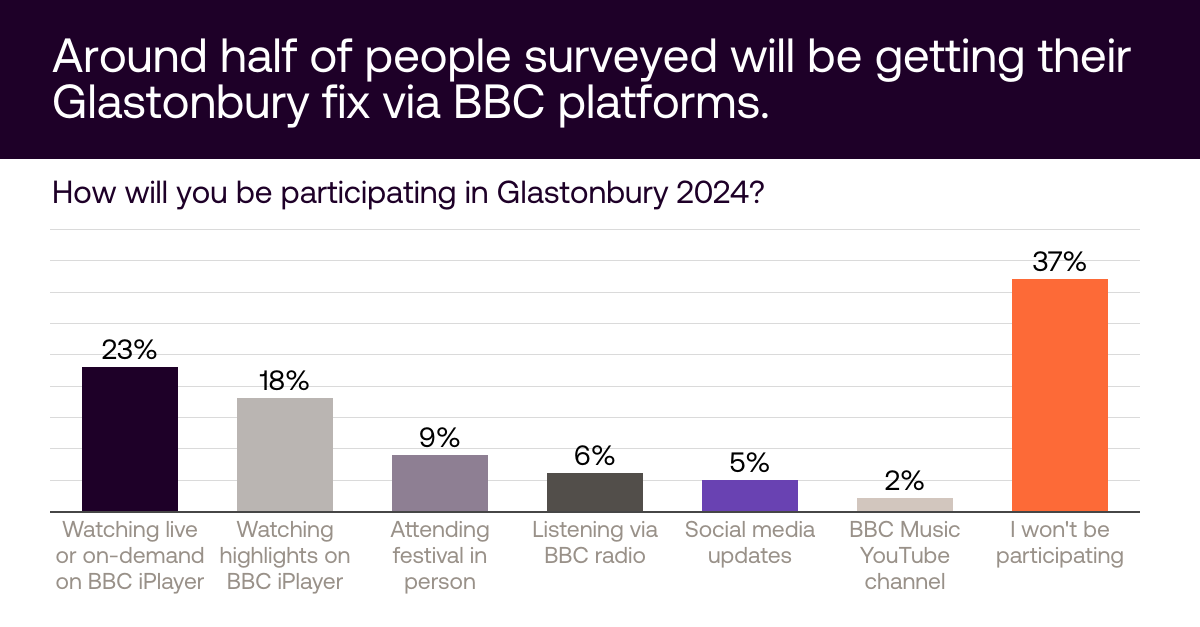
However, not everyone is in a festival mood: 37% of respondents said they won’t be participating in Glastonbury 2024 in any way, shape, or form.
Surprise, surprise!
In recent years Glastonbury’s built up a reputation for thrilling festival-goers with all manner of surprise acts popping up across the site.
If rumors are to be believed, revelers might find themselves stumbling across yet-to-be-announced performances by acts as diverse as gloomy rockers Interpol, pop-punk veterans Weezer and Radiohead side project The Smile.
Are secret sets an exciting prospect? 67% of people surveyed certainly thought so. Although one might have thought that a line-up featuring Dua Lipa, Coldplay and SZA as headliners would have satiated the appetite of even the more hard-to-please festival goers.
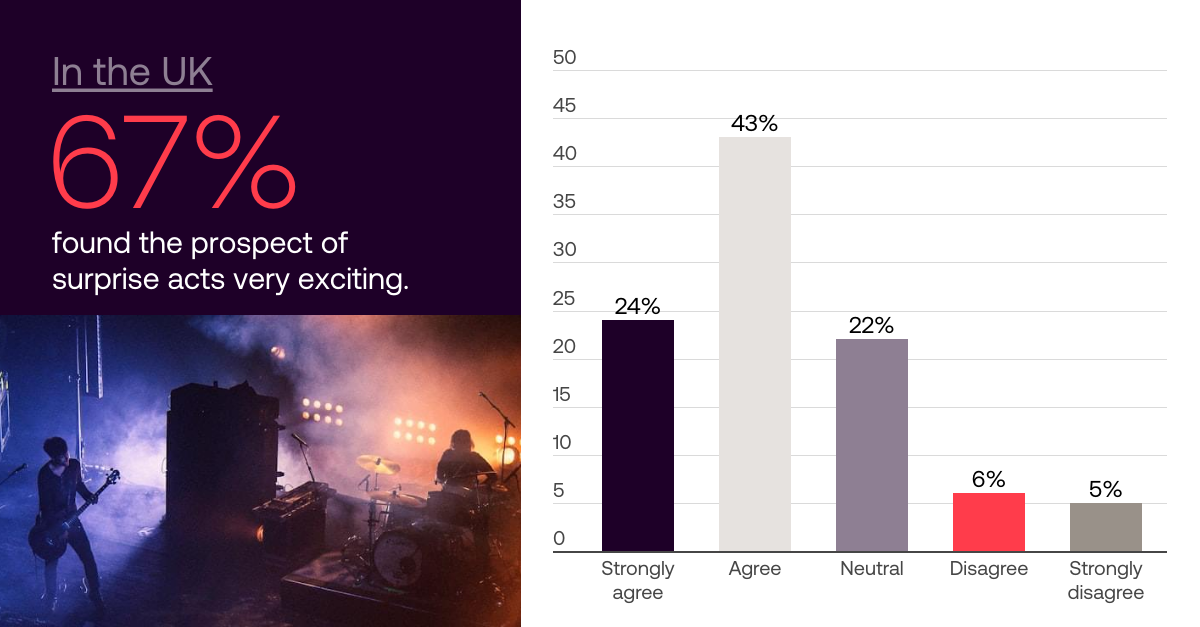
Eat, sleep, recycle, repeat
There’s more to a festival than good bands, burgers and performances. As events that tend to see thousands of people converging on green spaces strewn with hastily assembled stages (and all the technological baggage that comes with those rapid-fire feats of engineering), striving for a more environmentally friendly and sustainable approach to festivals is of increasing importance.
Glastonbury’s organizers pride themselves on the green credentials of their event. Last year’s event was powered by renewable energy sources and the organizers – spearheaded by Emily Eavis, daughter of founder Michael – have no plans to row back on that for this year’s event. Decathlon has also partnered with Glastonbury this year to introduce their ‘Tent Pledge’, offering refunds on tents that get returned.
That approach chimes with those polled by Cint. 67%, or two-thirds, of respondents agreed that similar environmental policies to those enacted by Glastonbury are important or very important to them. On the other end of the sustainable spectrum around 1 in 5 people polled deemed eco policy unimportant or very unimportant.
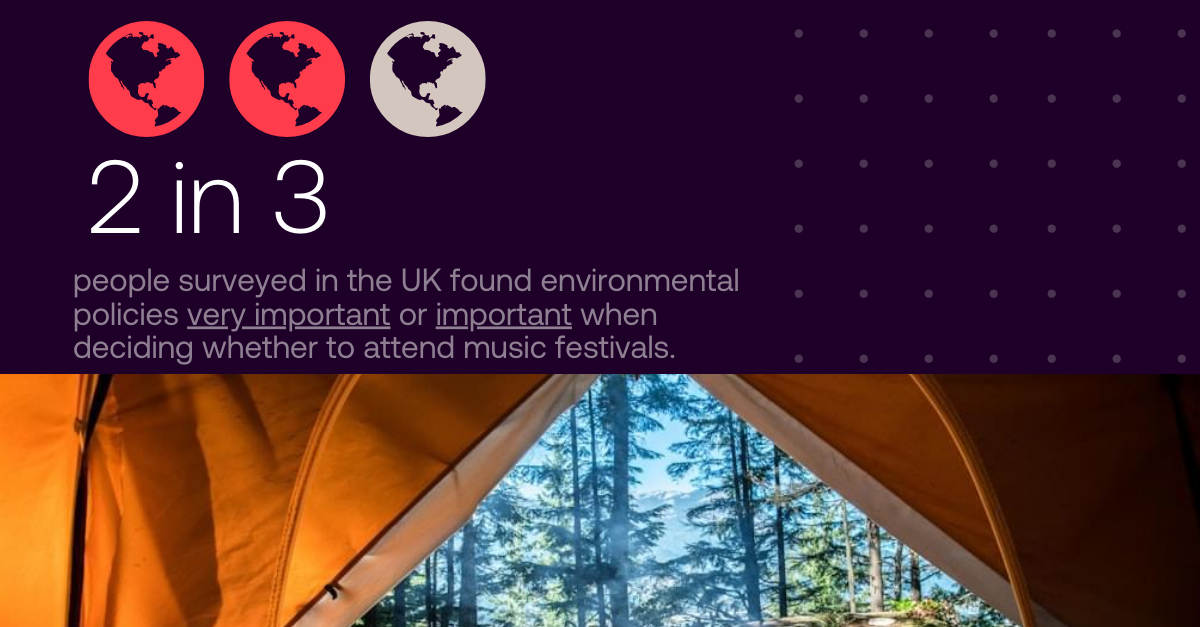
As with most things related to the environment, there’s the matter of individual responsibility to consider, even when you’re two days into a big blow out with all your mates at a festival like Glastonbury. After all, when you’re in the midst of a long, possibly booze-heavy weekend, recycling might be the last thing on your mind.
However, when questioned about their awareness of how to head into festival season in a sustainable manner – thinking of things like reusing camping equipment, recycling while at the event, and trying to shop as sustainably as possible in the lead up to a few days outdoors with friends and a stash of baby wipes for company – nearly three quarters (74%) of those surveyed by Cint reported that they were aware or very aware of doing their bit for the environment.
Conclusion
In short, the UK public want to hear good music at an affordable place in a location that’s convenient for them, preferably with something decent to eat — and maybe less in the way of spoken word performances. Makes sense, right?
Are you planning on banging your head at a heavy metal event or gearing up for a long weekend of thumping techno this summer? Or will you be keeping your wellies clean and enjoying festivities from the comfort of your sofa? Join the conversation on the Cint LinkedIn page.
Methodology
A ‘CintSnap’ is a snapshot into the minds of general consumers. The data featured was pulled using the Cint platform and leverages Cint’s programmatic research tech. A census demographic of approximately 300 United Kingdom consumers was surveyed for each question within a 3 hour window on the 17th of June, 2024.
Cint’s research technology helps our customers to post questions and get answers from real people, in real time – and to use these insights to build business strategies, publish research, and accurately measure the impact of advertising efforts. Find out more here.




